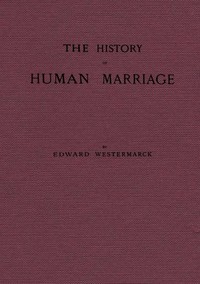The history of human marriage
Author: Edward Westermarck
Bookshelves: Culture/Civilization/Society, History - General, Sociology

Summary
"The History of Human Marriage" by Edward Westermarck is a scientific publication written in the late 19th century. The work explores the origins and development of marriage through various anthropological and sociological perspectives, assessing its implications across different cultures and time periods. Westermarck aims to provide a comprehensive analysis of marriage as a fundamental social institution, challenging established notions from previous scholars. The opening of the book presents an introduction by Alfred R. Wallace, who highlights the philosophical rigor and comprehensive nature of Westermarck’s argument. Westermarck outlines his approach to investigating human marriage scientifically, emphasizing the importance of ethnography in understanding social phenomena beyond mere historical documentation. He critiques earlier theories about marriage derived from primitive customs, insisting on a careful examination of the sociological underpinnings that influence the evolution of marriage. The early chapters promise an exploration of marriage’s connection to parental care in the animal kingdom as well as its roots in human society, setting the stage for a detailed inquiry into the various forms and customs of marriage throughout history. (This is an automatically generated summary.)
 LibraryManager
LibraryManager